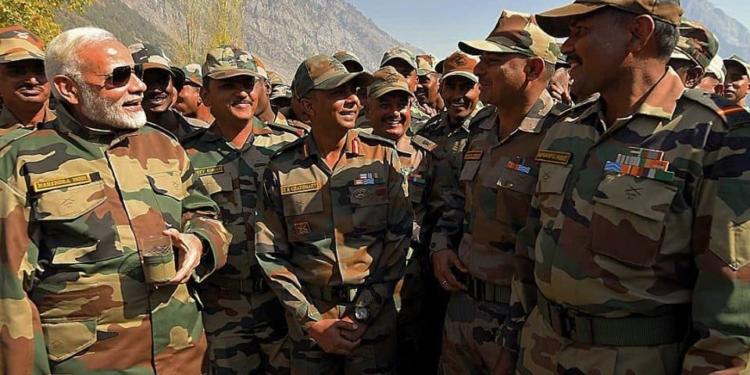In a major development, as if in response to Modi government’s spectacular return to power for a second term, the Islamic Republic of Pakistan has replaced the current Inter-Services Intelligence (ISI) Chief, Lieutenant General Asim Munir and has appointed a hardliner, Lieutenant General Faiz Hameed as the new chief of the intelligence agency. This change of guard was reported by the Pakistan military’s press wing. However, no explanation was given for replacement of the ISI chief.
The Army enjoys a dominant position in Pakistan and is certainly seen as an overwhelming influence over the civilian government. As such the post of ISI chief is one of the most important positions in the country. Therefore, a change in guard at the top level does mean that Pakistan might be looking for a strategic shift by appointing a hardliner at the top level.
Lieutenant General Munir was expected to stay in office for a tenure of three years. However, he has been replaced merely after 8 months from the date of his appointment. This clearly suggests that this is not just a routine replacement but a well-thought-out strategic change.
Lieutenant General Hameed was seen as highly influential in the ISI during his previous stint at the intelligence agency. He was also a key figure in handling the Faizabad agreement towards the end of 2017, when there was a confrontation between the military and the civilians with protestors blocking off roads in Islamabad.
Pakistan may be intending to escalate tensions with India by appointing a hardliner as the ISI chief. It must be kept in mind that the primary mandate of the ISI is to push and realise Pakistan’s foreign policy to ‘bleed India through a thousand cuts’. The thrust of Pakistan’s foreign policy and mandate of the ISI is to strike civilian establishments situated within India and to carry out deadly terror attacks across the country. As a part of this mandate, the ISI constantly worked towards carrying out serial bomb blasts and terror strikes across the length and breadth of India.
However, it can be safely said that ever since the Modi government came at the helm of affairs, the ISI has failed miserably in achieving its goals. The Modi government has been able to ensure that terrorism is restricted to and fought effectively on the country’s borders and not allowed to penetrate into cities and target civilian establishments. Till the fag end of the last decade and even into the initial years of the present decade, before the Modi government stormed to power, the ISI was able to effectively work towards its objective of bleeding India through a thousand cuts. The 26/11 terror attack in Mumbai is often seen as a glaring example of Pakistan’s violent foreign policy against India. However, a spate of terror strikes at that time exhibited how the ISI was continuously working towards its core objective and that is to bleed India through a thousand cuts. The serial bomb blasts in Delhi in 2008, Ahmedabad blasts in the same year, 2011 serial bomb blasts in Mumbai, serial blasts in 2008 in Bengaluru and the 2010 bomb blasts in Pune are all examples of ISI giving effect to Pakistan’s hateful foreign policy to bleed India through a thousand cuts.
However, with the ISI-led attempts to target the civilian population within India being effectively combated under the present dispensation, it seems that Pakistan is now desperate for a breakthrough. India’s transition into the era of assertive policy, in terms of surgical strikes and the Balakot Airstrikes in February, has unnerved the enemy. This is not just an acknowledgment of PM Modi’s success in combating terrorism, but also a warning of sorts. For the ISI, these are exceptionally tough times. Pakistan is desperate and so is the ISI. The move to appoint a hardliner at the top post suggests that Pakistan has given a clear message to its intelligence agency that it cannot just sit back and fail to realise its objective. It is expected to effectively target Indian cities and that is why a hardliner has been appointed as the chief with a sinister aim. It is time for India and the Modi government to ready itself and take on the country that banks on terror before the latter takes an initiative.























